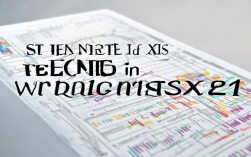Understanding how to write effectively about monetary topics in English requires a blend of linguistic skill, economic insight, and structured composition. Whether discussing inflation, digital currencies, or global financial systems, mastering this subject enhances both language proficiency and analytical thinking. Below are key strategies to elevate your English essays on currency-related themes.

Building a Strong Vocabulary
A well-developed lexicon is essential for articulating financial concepts clearly. Instead of repeating basic terms like money or cash, incorporate precise alternatives:
- Currency: Refers to a system of money used in a particular country.
- Legal tender: Official money recognized by law.
- Fiat money: Government-issued currency not backed by physical commodities.
- Cryptocurrency: Digital or virtual currency secured by cryptography.
- Inflation: The decline in purchasing power over time.
Using varied terminology prevents redundancy while demonstrating depth of knowledge.
Structuring Your Essay Logically
A coherent framework ensures clarity and persuasiveness. Follow this standard outline:
Introduction
Begin with a hook—a striking fact or rhetorical question—to engage readers. Example:
"Did you know that over 80% of global transactions involve the U.S. dollar?"
Then, introduce the central topic and thesis statement.

Body Paragraphs
Each paragraph should focus on one main idea, supported by evidence. For instance:
- Paragraph 1: Historical evolution of currency (barter to digital money).
- Paragraph 2: Functions of money (medium of exchange, store of value).
- Paragraph 3: Modern challenges (cryptocurrencies, inflation).
Use transitional phrases (Furthermore, Consequently, In contrast) to maintain flow.
Conclusion
Reinforce the thesis without repetition. End with a thought-provoking statement:
"As financial systems evolve, understanding currency becomes not just an academic exercise but a necessity for global citizens."
Incorporating Real-World Examples
Concrete illustrations strengthen arguments. When discussing inflation, reference hyperinflation in Zimbabwe or Venezuela. For digital currencies, analyze Bitcoin’s volatility or central bank digital currencies (CBDCs). These examples make abstract concepts tangible.

Mastering Grammar and Style
Financial writing demands precision. Avoid common pitfalls:
- Passive voice overuse: Instead of "The dollar is used globally," write "Countries widely use the dollar."
- Complex jargon: Simplify where possible—"monetary policy" is acceptable, but "quantitative easing" may need brief explanation.
- Consistent tense: Maintain past tense for historical events and present tense for general truths.
Enhancing Critical Analysis
Move beyond description by evaluating implications. For example:
- "While cryptocurrencies offer decentralization, their environmental impact raises ethical concerns."
- "The dominance of the U.S. dollar in trade creates both advantages and dependencies for emerging economies."
This approach showcases higher-order thinking.
Practicing with Sample Prompts
Regular writing drills refine skills. Try these topics:

- "How has digital currency transformed global finance?"
- "Should cash be abolished in favor of electronic payments?"
- "Compare the roles of the IMF and World Bank in currency stability."
Leveraging Authentic Sources
Cite reputable references (IMF reports, The Economist, central bank publications) to bolster credibility. Avoid unsupported claims.
Editing for Clarity and Impact
Revise ruthlessly. Eliminate wordiness, check for logical gaps, and ensure varied sentence structure. Tools like Grammarly help, but manual review is irreplaceable.
Writing about currency in English is more than an academic task—it’s a gateway to understanding global economics. By refining vocabulary, structure, and critical analysis, essays become not just assignments, but insightful contributions to financial discourse. As digital and traditional monetary systems collide, the ability to articulate these changes in clear, compelling English will only grow in value.











